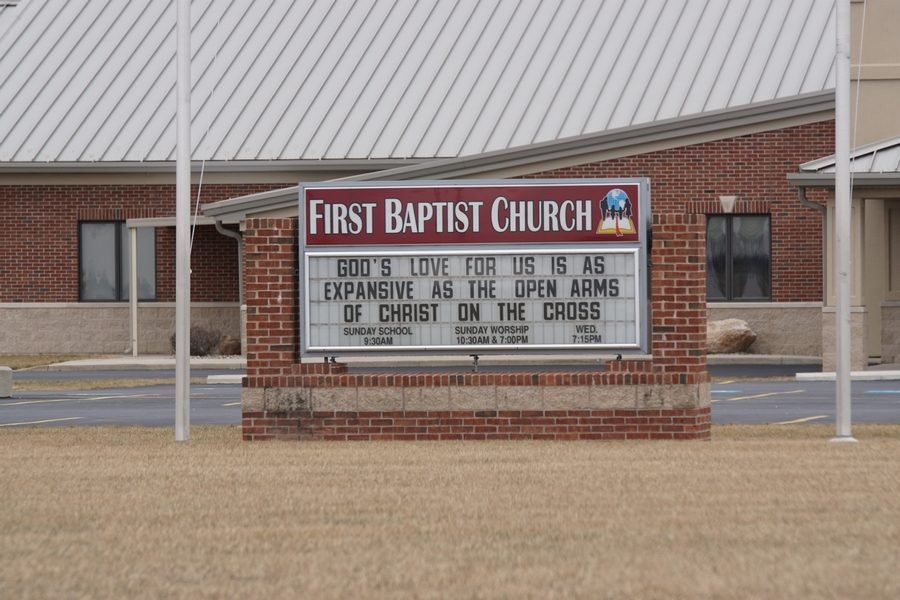
The Black Collar Crime Series relies on public news stories and publicly available information for its content. If any incorrect information is found, please contact Bruce Gerencser. Nothing in this post should be construed as an accusation of guilt. Those accused of crimes are innocent until proven guilty.
In 2023, Albert Wharton, former pastor of Victory Baptist Church in Warsaw, Virginia, was accused of 22 felony counts of taking indecent liberties with a child under the age of 13 while in a custodial position and eight felony counts of aggravated sexual assault. Victory Baptist is an Independent Fundamentalist Baptist (IFB) congregation.
A former pastor of an independent Baptist church in the town of Warsaw in Richmond County is facing 30 felony charges relating to multiple incidents the Richmond County Sheriff’s Office alleges occurred at the church between 1981 and 1997.
Albert Benjamin Wharton, 86, of South Carolina, was arrested in South Carolina at 8:42 a.m. on Friday, Dec. 8 by investigators from the Richmond County Sheriff’s Office, the Federal Bureau of Investigations, and South Carolina’s Pickens County Sheriff’s Department.
On the same day, Wharton was extradited to the Northern Neck Regional Jail in Richmond County.
Sheriff Steve Smith of the Richmond County Sheriff’s Office said Wharton’s arrest was the culmination of a 15-month investigation into more than two dozen alleged incidents that occurred while he was a preacher at Berachah Academy between 1981 and 1997. The academy has since closed.
Wharton was charged with 22 felony counts of taking indecent liberties with a child under the age of 13 while in a custodial position and eight felony counts of aggravated sexual assault.
“Wharton has lived and served seven churches in Virginia, South Carolina, Alabama and Florida over the past four decades,” Sheriff Smith said.
Today, Wharton was sentenced to eight years in prison for his crimes.
A former Warsaw pastor at Victory Baptist Church in Richmond County will spend eight years behind bars for child sex crimes committed between 1981 and 1996.
Dozens gathered inside of a Richmond County courthouse in the afternoon of Monday, Sept. 8 in the small town of Warsaw. The anticipated hearing was set to determine the sentence for 88-year-old Albert Wharton, a former pastor at Victory Baptist Church.
In 2023, the Richmond County Sheriff’s Department arrested and charged Wharton with 22 felony counts of taking indecent liberties with a child under the age of 13 while in a custodial position and eight felony counts of aggravated sexual assault.
According to deputies, the crimes were committed at the church’s former school, Berachah Academy, where Wharton was a pastor.
….
In June, Wharton entered an Alford plea for eight of those charges. Meaning he is maintaining his innocence while recognizing the Commonwealth’s evidence could find him guilty if this case were sent to trial. The remaining charges were nolle prosequi — meaning officials are declining to prosecute.
….
Four victims shared impact statements during the sentencing hearing. Many were brought to tears as they recounted the sexual acts. Some shared that Wharton abused his role as a pastor and say they were beaten and touched inappropriately. Every victim shared the emotional and mental toll this has taken on their lives and said they wish Wharton would take accountability.
Four of Wharton’s family and friends also spoke out during the hearing to share who they know Wharton to be. Many stated that the actions he was charged with was unlike the character they knew. Instead, they described Wharton as a caring, loving, man of God. Wharton’s daughter was among those to speak in Wharton’s character. She described Wharton as her hero and a great example for her kids.
Wharton’s defense attorney shared during his argument to the judge that Wharton does not deserve to die in prison. He cited the 88-year-old’s health as a reason for the judge to suspend his sentence or give him a shortened or at home incarceration.
The Richmond County Commonwealth’s Attorney, Elizabeth Trible, argued that Wharton’s age should not be a factor.
“Mr. Wharton used the girls ages in order to commit these crimes against them and attempted today to use his own age to avoid responsibility for these crimes. I am pleased that the judge didn’t accept that argument,” Trible said.
Bruce Gerencser, 68, lives in rural Northwest Ohio with his wife of 47 years. He and his wife have six grown children and sixteen grandchildren. Bruce pastored Evangelical churches for twenty-five years in Ohio, Texas, and Michigan. Bruce left the ministry in 2005, and in 2008 he left Christianity. Bruce is now a humanist and an atheist.
Your comments are welcome and appreciated. All first-time comments are moderated. Please read the commenting rules before commenting.
You can email Bruce via the Contact Form.









